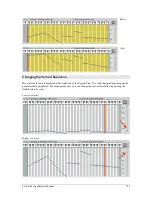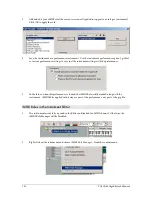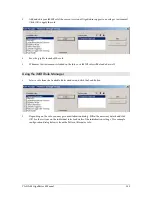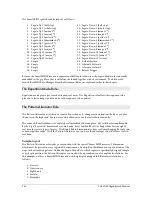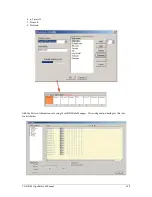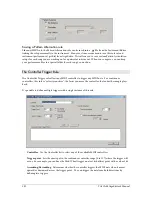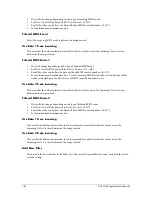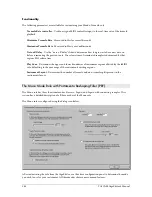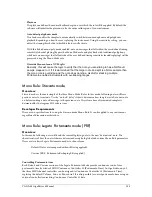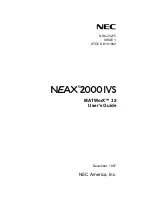
188
TASCAM GigaEditor 4 Manual
Th e Smart MIDI splits should be laid out as follows:
1.
Legato Up 1 (half step)
2.
Legato Up 2 (whole step)
3.
Legato Up 3 (minor 3
rd
)
4.
Legato Up 4 (major 3
rd
)
5.
Legato Up 5 (perfect 4
th
)
6.
Legato Up 6 (diminished 5
th
)
7.
Legato Up 7 (perfect 5
th
)
8.
Legato Up 8 (minor 6
th
)
9.
Legato Up 9 (major 6
th
)
10.
Legato Up 10 (minor 7
th
)
11.
Legato Up 11 (major 7
th
)
12.
Legato Up 12 (octave)
13.
Empty
14.
Empty
15.
Empty
16.
Empty
17.
Legato Down 1 (half step)
18.
Legato Down 2 (whole step)
19.
Legato Down 3 (minor 3
rd
)
20.
Legato Down 4 (major 3
rd
)
21.
Legato Down 5 (perfect 4
th
)
22.
Legato Down 6 (diminished 5
th
)
23.
Legato Down 7 (perfect 5
th
)
24.
Legato Down 8 (minor 6
th
)
25.
Legato Down 9 (major 6
th
)
26.
Legato Down 10 (minor 7
th
)
27.
Legato Down 11 (major 7
th
)
28.
Legato Down 12 (octave)
29.
Default Sustain
30.
Alternate Sustain 1
31.
Alternate Sustain 2
32.
Release Trigger
Because the Smart MIDI dimension requires an iMIDI rule to function, the Legato Mode rule is normally
embedded in the .gig file so that it will always be loaded together with its instrument. To add the rule,
launch the iMIDI Rule Manager from the Instrument Editor as explained earlier in this chapter.
The Repetition Mode Rule
Repetition mode plays a pre-recorded sequence of notes. Th e Repetition rule allows this sequence to be
played at a faster tempo, and for notes in the sequence to be omitted.
The Pattern Alternator Rule
Th e Pattern Alternator acts like an automatic key-switcher. It changes articulations on the fly as you play
the notes on the keyboard. Every note you hit advances to another articulation instantly.
Th e order of the articulations is completely customizable by the composer. Key switches (as implemented
by the Giga “keyswitch” dimension) are very handy, but it can be difficult to change them fast enough in
real time for certain types of music. Th e Round Robin dimension also does real time changing but only in a
certain repetitive order. With the Pattern Alternator, you can have the advantages of both of these tools in
real time.
Sample layout
Th e Pattern Alternator rule works in conjunction with the special "Smart MIDI processor" dimension,
which must be present in every region of the instrument. Each split in this dimension represents one of the
steps in the alternator pattern. Unlike the Legato Mode Rule, which requires a specifically designed sample
at each split position, the Pattern Alternator can work with any combination of sampled articulations. For
this example, we'll use a Smart MIDI dimension with eight splits mapped to different articulations as
follows.
1. Staccato
2. Quarter note
3. Eighth note
4. Sustain
5. Sforzando


